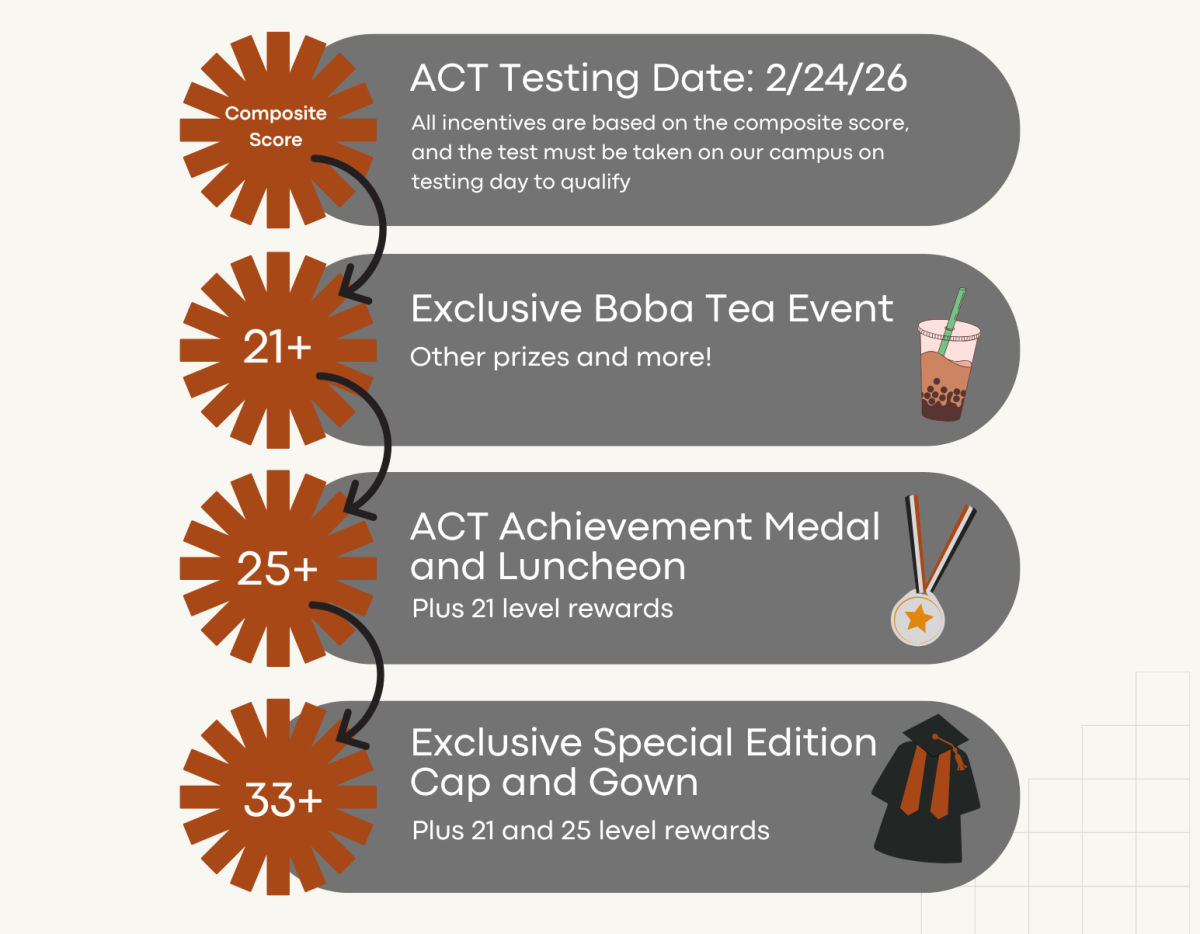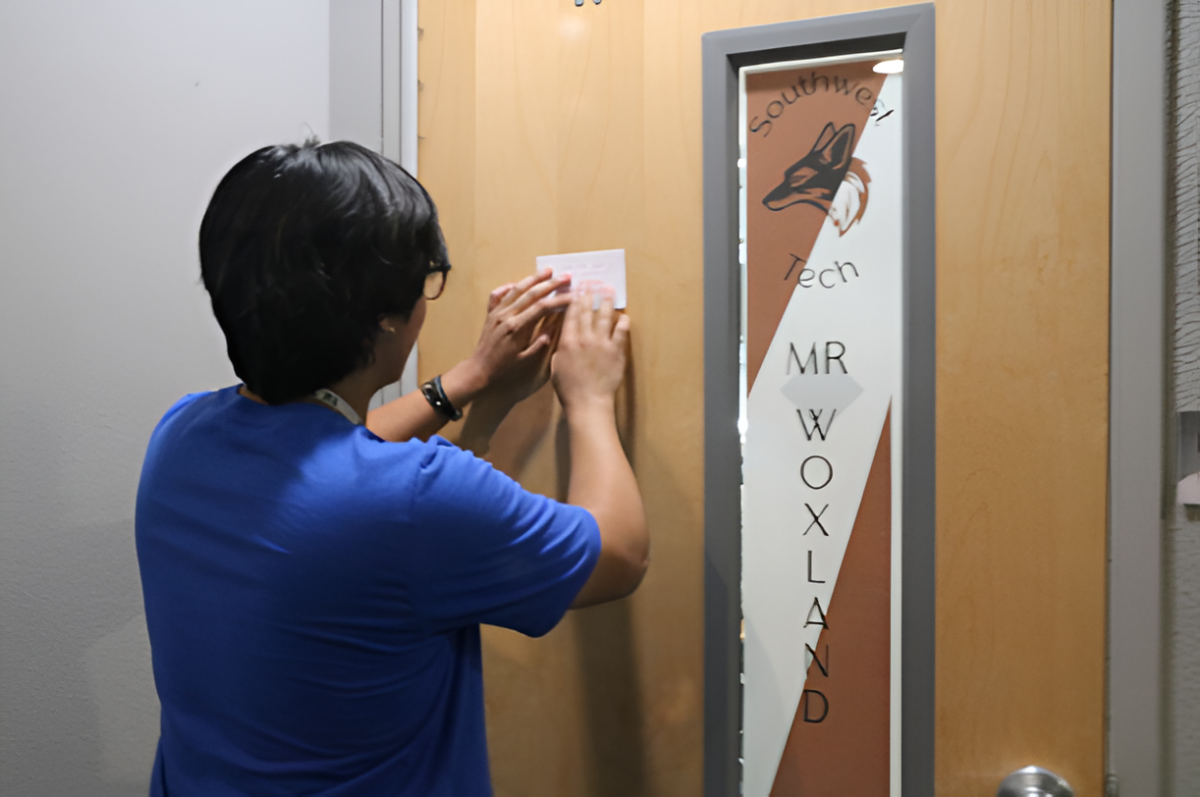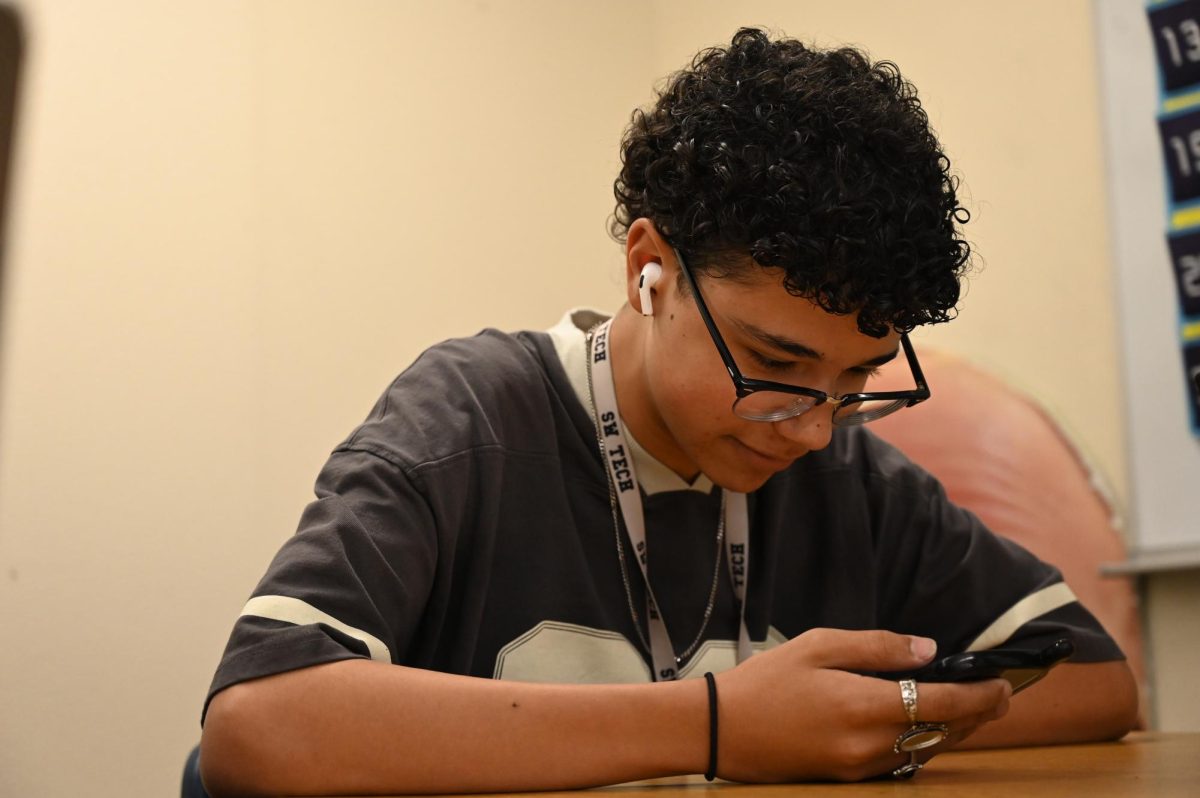Seated in front of a mountain of homework, only being kept awake by energy drinks and the fear of turning in work late- it is an endless battle of trying to keep your eyes open as they slowly get heavier.
For an alarmingly large portion of high schoolers, this fight against sleep happens every day, and it could lead to disastrous health effects.
Sleep is one of the most important basic needs next to food and water, especially for a high school student with a developing brain. Although it varies from person to person, The Sleep Foundation recommends teenagers get 8-10 hours of sleep per night; only 30 percent of teenagers meet that goal.
“I usually get around three or four hours of sleep per night,” senior Evelyn Schakaford said. “I’m also a line cook at Zuma five days a week, and it’s been really hard trying to keep up with assignments and studying for tests. Not getting that sleep has caused me a lot of anxiety and I’ve started to have mental breakdowns because of it.“
School start times also play a major role in why teens aren’t getting enough sleep. Stanford Medicine Children’s Health found that teenagers have a “biological shift in their circadian clock (the cycling 24-hour internal clock that controls innate sleeping, eating, and digestion habits).” This makes it difficult for them to fall asleep before 11 p.m., and that biological urge to sleep later doesn’t allow for much sleep when school starts so early in the morning.
“I just don’t feel like sleeping earlier,” junior Maximillan Aller said. “This year, I’ve been sleeping around midnight to 1 a.m. My internal clock definitely wants to make me sleep later, so I am really tired by the last period of the day and don’t feel like working in those classes.“
Coming to school without a full night of sleep can also affect productivity and academic performance in the classroom.
“Teenagers do need to get more sleep,” counselor Janelle Kelly said. “They’re still growing and their developing brains require extra sleep. Many students come in tired because we start so early. When they’re tired, they aren’t as sharp, they’re forgetful, and that might cause them to not perform as well on a test or assignment.”
Junior Ryan Duong believes a structured schedule and a plan to not procrastinate is enough to get a good night’s sleep.
“I just do homework right when I come back from school,” Duong said. “I have a planner with all the work I need to do. Even with AP Calculus and AP US History, homework only takes a couple hours so I can get around seven hours of sleep per night.“
Not getting enough quality sleep also has health risks that can persist into adulthood. Sleep Doctor states that teens who don’t get enough sleep are more likely to be prone to injury, have poor mental health, and sleep deprivation has also been linked to conditions like diabetes and hypertension.
“It’s an issue just trying to get to sleep,” junior Maxwell Johnson said. “I’ve taken melatonin and I’ve taken medication to try to sleep, but it just doesn’t help. There have been times where I’m trying to pass out, but I’ve had a coffee or an energy drink, and that’s the only thing keeping me awake these days.“
Getting a full, quality sleep every night seems impossible to many students, especially to those who have larger workloads or have a job, but taking control of sleep habits now can have lifelong benefits.
“You shouldn’t be up until three or four in the morning if you’re working efficiently,” Kelly said. “I know that some students have a lot of homework and I know that it takes some students longer to do homework, but there has to be a way to structure that better. If you get into a regular routine with a set time to do homework, relax, and sleep, you won’t have to stay up late.“








![Swaying and preparing to toss the tennis ball, Dylan Grove practices serving. Grove had been training in preparation for her upcoming matches against Chaparral and Doral Red Rock. “[Both teams are] both very tough opponents, but I am ready for whatever gets thrown my way,” Grove said.](https://southwestshadow.com/wp-content/uploads/2025/10/image-1200x900.png)




